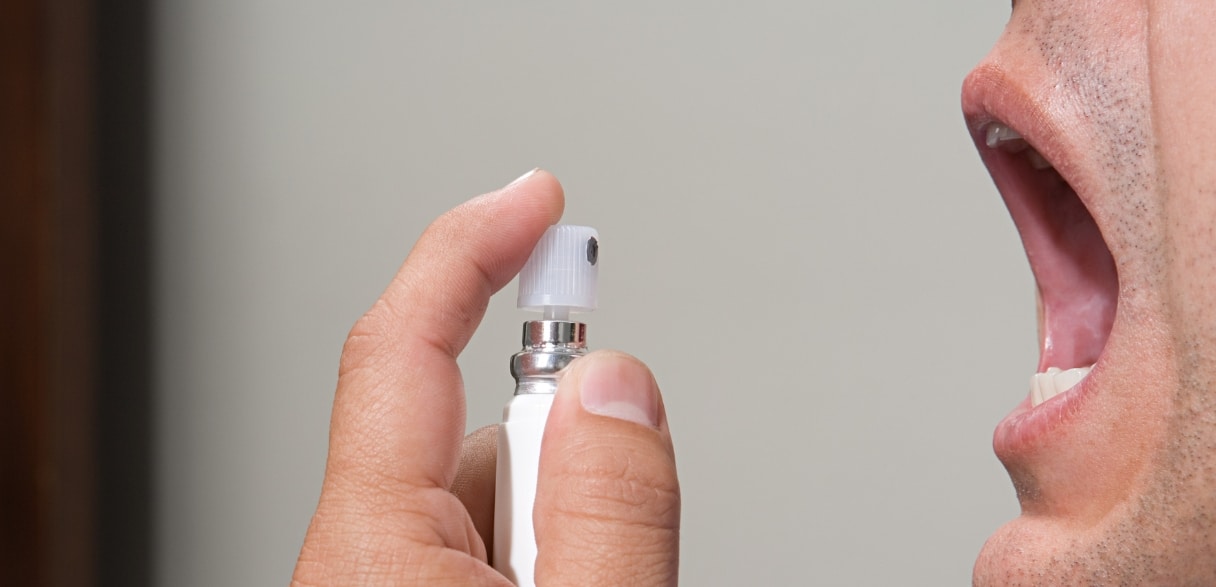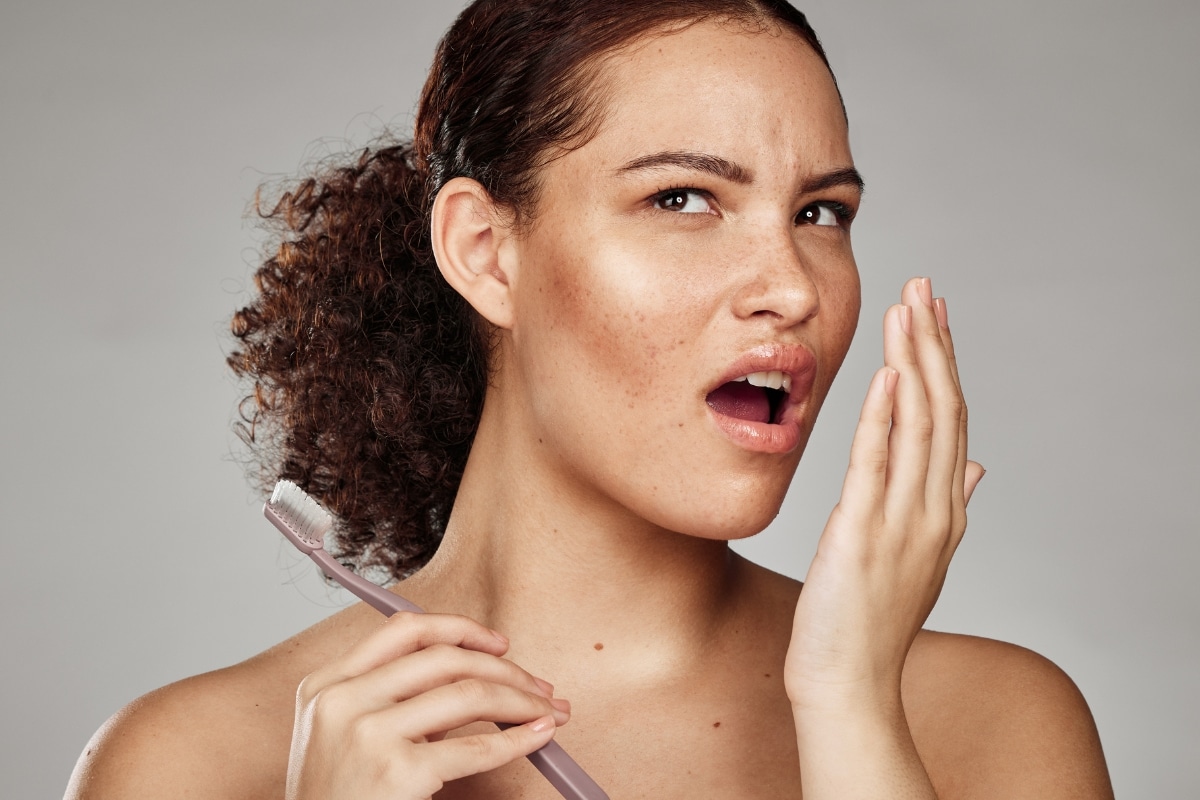
Bad breath, or halitosis, is a condition that affects one in four people worldwide. Although it can be an embarrassing problem to have, it’s also one of the most common oral health issues there is and understanding what causes bad breath can help you take the necessary steps to improve your oral hygiene and reduce your risk of experiencing this problem. Here are 10 of the most common causes of bad breath.
Dry Mouth
One of the main causes of bad breath is a dry mouth due to insufficient saliva production. Saliva acts like a natural mouthwash by washing away any food particles left behind after eating, as well as bacteria that can cause odor-causing bacteria to grow on your tongue and teeth. If you’re not producing enough saliva, these particles can get trapped in your oral cavity, and this is what causes bad breath.
Poor Oral Hygiene
Poor oral hygiene is one of the most common causes of bad breath. If you don’t brush or floss regularly, food particles will remain stuck in between your teeth and on your tongue which can cause bacteria to grow and produce an unpleasant odor. It’s important to brush twice a day for two minutes each time with a toothbrush and toothpaste that contains fluoride, as well as floss once a day and use mouthwash regularly.
Not Brushing Regularly
The first step to ensuring good oral hygiene is brushing regularly. Brushing helps to remove food particles and plaque from your teeth which can cause bad breath if it’s allowed to build up. Brushing twice a day for two minutes each time is the recommended amount of brushing in order to maintain oral health.
Not Flossing
Flossing is an important part of oral hygiene and should be done at least once a day. Flossing helps to remove any food particles that are stuck in between your teeth as well as removing plaque, which can contribute to bad breath.
Not Using Mouthwash
Mouthwash can help reduce the number of bacteria in your mouth which can help prevent bad breath. It’s essential to look for alcohol-free mouthwash, as alcohol-based mouthwash can dry out your oral cavity and cause bad breath.
Certain Foods and Drinks
Certain foods and drinks can also contribute to bad breath. Food particles that get stuck in between teeth or on the tongue can cause bacteria to grow, which will produce an unpleasant odor. Foods with strong odors, such as garlic, onions, and spices, are common culprits of bad breath, as well as sugary snacks and drinks like soda and candy.
Sugary Snacks
Sugary snacks like cookies and cakes contain sugar which bacteria love to feed on. The bacteria will break down the sugar into acids which will cause an unpleasant odor to be released from your oral cavity.
Alcohol and Coffee
Alcohol and coffee are diuretics, meaning that they can cause your mouth to become dry, which can lead to bad breath. Both of these also contain high levels of sugar, which encourages bacterial growth in the oral cavity.
Smoking
Smoking is one of the leading causes of bad breath as it dries out the oral cavity making it easier for bacteria to grow and produce an unpleasant odor. It’s important to quit smoking in order to reduce your risk of experiencing this problem.
Medical Conditions
Certain medical conditions can also contribute to bad breath, such as acid reflux or sinus infections. Acid reflux can cause stomach acid to rise up into the oral cavity, which can produce an unpleasant odor, while sinus infections can cause thick mucus to accumulate in the oral cavity, which can also lead to bad breath.
Diabetes
Diabetes is a chronic condition that affects the body’s ability to regulate blood sugar levels. High blood sugar levels can lead to bacterial growth in the oral cavity, causing an unpleasant odor. It’s important for diabetics to have good oral hygiene and see their dentist regularly in order to reduce their risk of experiencing this problem.
Liver Disease
Liver disease causes toxins and chemicals to build up in the body, which can be released through the oral cavity in the form of bad breath. It’s important for those with liver disease to take good care of their oral health and visit their dentist regularly in order to reduce the risk of experiencing this problem.
Kidney Disease
Kidney disease can also cause bad breath as it causes toxins to build up in the body, which is released through the oral cavity. Those with kidney disease need to have regular oral hygiene practices and see their dentist regularly in order to reduce their risk of experiencing this problem.
Bad breath is a common issue that can have many different causes, from poor oral hygiene to certain medical conditions. It’s essential to practice good oral hygiene by brushing twice daily, flossing once a day, and using mouthwash to reduce your risk of experiencing this problem. Additionally, avoiding certain foods and drinks, such as those that contain sugar or alcohol, can also help to reduce the risk of bad breath.
A: It’s recommended to brush your teeth at least twice a day with fluoride toothpaste in order to keep oral bacteria levels low and reduce the risk of bad breath.
A: Yes, drinking coffee can cause dry mouth, which can lead to bad breath if oral hygiene practices are not maintained regularly.
A: Some medications can dry out the oral cavity, leading to bad breath. It’s essential to speak with your doctor about any potential side effects of taking these medications to reduce your risk of experiencing this problem.



